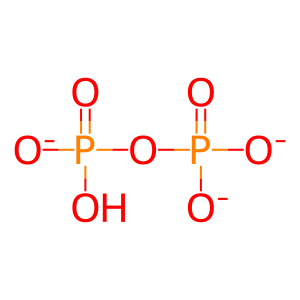Reaction: ANKH transports PPi from cytosol to extracellular region
- in pathway: Miscellaneous transport and binding events
Progressive ankylosis protein homolog (ANKH) is a putative transmembrane pyrophosphate (PPi) transport channel protein found in osteoblasts of various bones. It mediates the transport of cytosolic PPi to the extracellular matrix. Abnormal transport of PPi is implicated in familial calcium pyrophosphate dihydrate deposition (CPPD) disease. There are two forms of CPPD disease: CCAL1 and CCAL2. Defects in ANKH can cause chondrocalcinosis (CCAL2; MIM:118600), a chronic condition in which PPi crystals deposit in the joint fluid, cartilage, and periarticular tissues and there is calcium deposition in articular cartilage (Pendleton et al. 2002, Williams et al. 2002, Williams et al. 2003). Defects in ANKH can also cause craniometaphyseal dysplasia, autosomal dominant (CMDD; MIM:123000), an osteochondrodysplasia characterised by progressive thickening and increased mineral density of craniofacial bones and abnormal modelling of metaphyses in long bones (Nurnberg et al. 2001, Reichenberger et al. 2001).
Reaction - small molecule participants:
PPi [extracellular region]
PPi [cytosol]
Reactome.org reaction link: R-HSA-5226964
======
Reaction input - small molecules:
diphosphate(3-)
Reaction output - small molecules:
diphosphate(3-)
Reactome.org link: R-HSA-5226964

